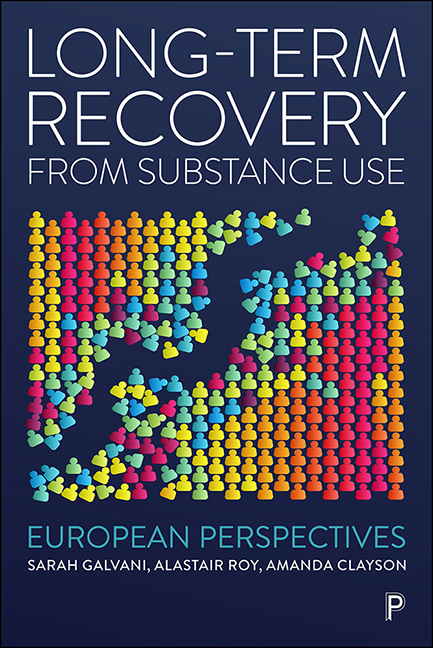PART III - Diversity across the lifespan in long-term recovery
Published online by Cambridge University Press: 15 September 2022
Summary
This final part of the book provides a reminder of the breadth and reach of long-term recovery issues. These five chapters illustrate specific circumstances and contexts all too often not readily associated with explorations of longterm recovery. They also include a variety of approaches and styles adopted by the authors. A more theoretical approach frames the focus in Chapter 10. Here, the authors blend two distinct evidence reviews to critically explore resources that may hinder or support the recovery process of persons who identify as migrants and ethnic minorities (MEM). This includes a critical literature review of the concept and implementation of cultural competence and a narrative review of recovery capital through the first-person recovery perspectives of a number of migrant people and people from ethnic minorities. Their resultant analysis signals the importance of considering social and structural determinants and resources in supporting stable recovery among MEM both in theory (epidemiology, cultural competence and recovery capital) and practice. Chapter 11 presents a compelling and novel comparison between identity transitions for children leaving care and for adults in recovery. Drawing on empirical research from two studies, the authors compare the process of ‘maturation’ from a largely passive, socially influenced identity to ‘individualisation’ and agency. They argue that this emanates, primarily, as participants in the studies gain greater confidence through volunteering and employment activities, while at the same time providing a context of communitas from shared experience. At the other end of the age spectrum, Chapter 12 presents a comprehensive picture of the realities and issues that can make long-term recovery seem out of reach both for the older opioid users (OOU) and the practitioners involved in their care and support over many years. The research findings about implementation of a psychosocial intervention adapted for OOU highlight the significance of individual-oriented definitions of success for the effectiveness of such interventions and how they can help OOU to improve their lives. Our final chapter in this section, Chapter 13 centres around the learning derived from a two-year UK-based research project around end-of-life care for people impacted by substance use.
- Type
- Chapter
- Information
- Long-Term Recovery from Substance UseEuropean Perspectives, pp. 125 - 126Publisher: Bristol University PressPrint publication year: 2022

